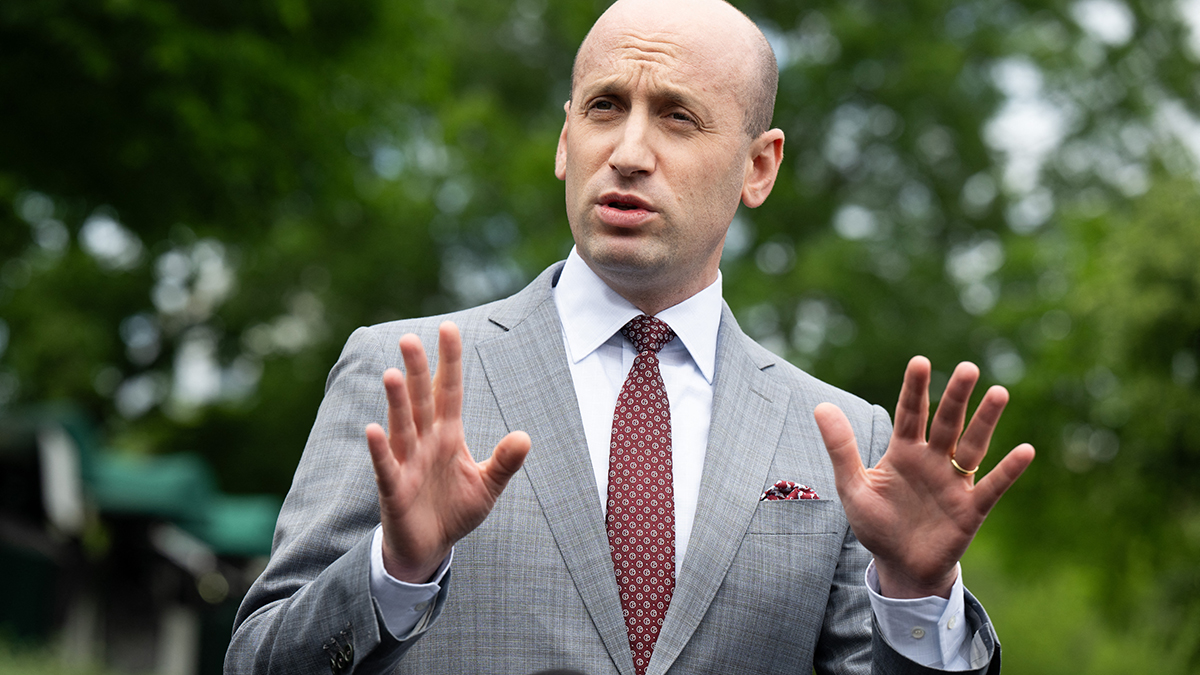$1000 to Leave? Trump's Shocking Deportation Plan Explained!
Trump Admin's Controversial $1,000 Self-Deportation Plan: Fact vs. Fiction
Introduction: A New Chapter in Immigration Policy?
Imagine waking up to headlines declaring the government is *paying* people to leave. Sounds like something out of a dystopian novel, right? Well, on May 5th, 2025, that's exactly what the buzz was about. The Trump administration, never one to shy away from shaking things up, announced a groundbreaking (and, let's be honest, controversial) plan: offering $1,000 to undocumented immigrants who voluntarily self-deport. Is this a win-win, or a policy disaster in the making? Let's dive in and unpack the details of this head-turning initiative.
The Announcement: What We Know So Far
The official announcement came from the Department of Homeland Security (DHS), confirming that the administration would indeed offer $1,000 to undocumented immigrants who choose to return to their home countries voluntarily. This is aimed at reducing the undocumented population within the United States. But the devil, as always, is in the details.
Initial Reactions and Political Fallout
Predictably, the announcement sparked a firestorm of debate. Supporters hailed it as a cost-effective and humane way to address immigration issues. Critics, on the other hand, decried it as a cynical political maneuver, arguing that it incentivizes self-deportation under duress and devalues the contributions of immigrants to American society. Is this policy truly addressing the root causes of immigration, or simply treating a symptom with a band-aid solution?
The Rationale Behind the $1,000 Offer
Why $1,000? The administration's rationale centered around several key arguments:
Cost-Effectiveness Compared to Deportation
The primary argument was financial. The administration claimed that the cost of apprehending, detaining, and deporting an undocumented immigrant far exceeds $1,000. Offering a monetary incentive, they argued, would be a cheaper alternative, freeing up resources for other law enforcement priorities.
Encouraging Voluntary Compliance
Proponents also suggested that the plan encourages voluntary compliance with immigration laws. Rather than forcing individuals to leave against their will, the $1,000 offer provides a pathway for them to return to their home countries with a small financial cushion. It’s like saying, "Here’s a little something to help you get back on your feet," but is it really that simple?
The Details: How the Program Works
While the initial announcement was impactful, many questions remained about the program's implementation.
Eligibility Requirements
Who exactly qualifies for the $1,000? The program's eligibility requirements were specific: Undocumented immigrants who had no criminal record, were not subject to any deportation proceedings, and agreed to permanently relinquish any future claims to legal residency in the United States. This effectively excludes many who might need the money the most.
Application Process
The application process was reportedly streamlined, involving an online form and an in-person interview with DHS officials. Verification of identity and immigration status was crucial. False information would result in disqualification and potential legal consequences.
Payment Distribution
The $1,000 payment was distributed upon verification of departure from the United States. Payment methods included prepaid debit cards or direct bank transfers to accounts in the immigrant's home country. This aimed to ensure the money was used for resettlement and reintegration.
Ethical and Moral Considerations
Beyond the logistical details, the program raises profound ethical and moral questions.
The Question of Coercion
Critics argued that the $1,000 offer could be seen as a form of coercion, especially for vulnerable individuals and families struggling to make ends meet. Does this incentivize people to leave when they may prefer to stay and fight for legal status? Is it truly voluntary when the alternative is the constant threat of deportation?
The Value of Human Dignity
Some argued that reducing a person's decision to leave their home and community to a financial transaction devalues human dignity. They believe that immigrants deserve respect and due process, not a payout to simply disappear.
Legal Challenges and Constitutional Concerns
Unsurprisingly, the program faced immediate legal challenges.
Equal Protection Clause
One major legal argument centered around the Equal Protection Clause of the Fourteenth Amendment, which guarantees equal protection under the law. Some argued that the program unfairly targets undocumented immigrants, creating a discriminatory system.
Due Process Rights
Another challenge focused on due process rights. Opponents claimed that the program potentially bypasses established legal procedures for deportation, undermining the rights of immigrants to a fair hearing.
Economic Impact and Fiscal Responsibility
The economic implications of the program were hotly debated.
Potential Savings vs. Long-Term Costs
While proponents touted the potential cost savings compared to deportation, others argued that the program could have long-term economic consequences. Removing undocumented workers from the economy could impact industries that rely on their labor, particularly in agriculture and construction.
Impact on Local Economies
Furthermore, the departure of undocumented immigrants could negatively affect local economies, particularly in communities where they contribute to the tax base and support local businesses. It's a ripple effect, isn't it?
Impact on Foreign Relations
This policy isn't just a domestic issue; it affects the United States' standing in the world.
Diplomatic Relations with Affected Countries
The program has the potential to strain diplomatic relations with countries whose citizens are being encouraged to self-deport. Receiving countries might perceive the program as an attempt to offload social and economic burdens onto them.
International Perception of U.S. Immigration Policy
The program could further damage the United States' reputation as a welcoming and tolerant nation, particularly among countries with large immigrant populations in the U.S.
The Future of Immigration Policy
This $1,000 self-deportation plan underscores the ongoing debate about the direction of U.S. immigration policy. Will it set a precedent for future initiatives, or will it be remembered as a short-lived experiment that ultimately failed to address the complexities of immigration?
Possible Extensions and Modifications
One possibility is that the program could be extended or modified to include other incentives, such as job training or educational opportunities in the immigrants' home countries. Another option is to tie the program to broader immigration reform efforts, creating a pathway to legal status for those who meet certain criteria.
Alternative Approaches to Immigration Reform
Other approaches to immigration reform include strengthening border security, streamlining legal immigration processes, and addressing the root causes of migration through international development programs. The question remains: what is the most effective and humane way to manage immigration flows in the 21st century?
Conclusion: A Policy Fraught with Questions
The Trump administration's $1,000 self-deportation plan is a complex and controversial initiative. While proponents argue that it's a cost-effective and humane way to address immigration issues, critics raise serious concerns about coercion, ethical implications, and potential legal challenges. Ultimately, the program's success will depend on its impact on undocumented immigration, its economic consequences, and its effects on international relations. But one thing is clear: this policy has sparked a critical conversation about the future of immigration in America.
Frequently Asked Questions
- What happens if someone accepts the $1,000 and then tries to return to the United States illegally? If an individual accepts the $1,000 and is later caught attempting to re-enter the U.S. illegally, they would face severe penalties, including potential criminal charges and permanent ineligibility for any future immigration benefits.
- Is the $1,000 payment considered taxable income? Whether the $1,000 payment is considered taxable income would depend on the specific tax laws and regulations in place at the time. It would be advisable for recipients to consult with a tax professional to determine their tax obligations.
- Does this program apply to asylum seekers or refugees? The program specifically targets undocumented immigrants who are not subject to deportation proceedings. Asylum seekers and refugees, who are in a different legal category, would generally not be eligible for this program.
- What recourse do undocumented immigrants have if they feel pressured to accept the $1,000 offer? Undocumented immigrants who feel pressured or coerced into accepting the offer can seek legal counsel from immigration attorneys or organizations that provide legal services to immigrants. They have the right to refuse the offer and pursue other legal options.
- How is the success of the program being measured? The success of the program is being measured by factors such as the number of participants, the cost savings compared to traditional deportation methods, and the impact on the overall undocumented population in the United States. Ongoing evaluations are essential to determine the program's effectiveness and address any unintended consequences.



